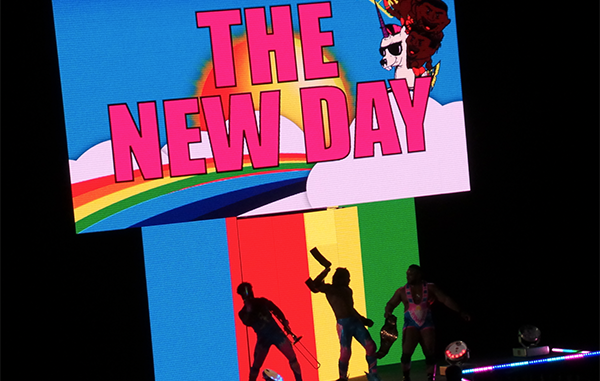
SPOTLIGHTED PODCAST ALERT (YOUR ARTICLE BEGINS A FEW INCHES DOWN)...
I grew up in a middle-class white neighborhood in Durham, North Carolina. I’m directly descended from a Civil War Confederate General, and both my parents were from the deep South. They were Presbyterians, and I never once heard either of them use an ethnic slur. It just wasn’t done. My aunt did once tell me that my grandfather back in the ’50s thought it wasn’t right that a black man, Nat King Cole, had his own television show.
 As a kid, I attended the segregated Durham County Schools. In the middle of the fourth grade, the schools were integrated, which meant some of my friends and their teachers now went to Pearson Town Elementary, and we had two black kids in our class. (One, Louis Cherry, could draw the hell out of “Wizard of Oz” characters.)
As a kid, I attended the segregated Durham County Schools. In the middle of the fourth grade, the schools were integrated, which meant some of my friends and their teachers now went to Pearson Town Elementary, and we had two black kids in our class. (One, Louis Cherry, could draw the hell out of “Wizard of Oz” characters.)
I bring this up to provide context:
It occurred to me, watching New Day flip pancakes on Smackdown, that the very first bit of culture involving African-Americans I ever absorbed – before Willie Moses, Flip Wilson, or The Best of Bill Cosby – came from a Jim Crow era picture book called “Little Black Sambo.”
“(The black man) is to be considered three-fifths of a human being.” -The United States Constitution (1788)
Little Black Sambo, originally a South Indian character, was the most famous of what poet Langston Hughes called “the pickaninny stories” – children’s tales of dark-skinned, bug-eyed, big-lipped, nit-haired kids who has cute little adventures in the jungle. Little Black Sambo was cultural kin to the most famous, richest African-American actor of his day, Stepin Fetchit, who played the exact same superstitious, spineless dull-wit in every movie and, to the black-faced Amos’n’Andy, the most popular radio show in the country, the novel “Uncle Tom’s Cabin,” and any number of Mammys in any number of B movies. .
“Sambo” became a racial epithet itself, a dangerous one in many neighborhoods.
There was even a Denny’s-like restaurant chain in the ’60s and early–’70s named Sambo’s – meant to evoke “the good old days” – that finally went out of business, in large part because of the negative connotations of the name.
You know what Little Black Sambo was most famous for?
Well, jungle-bunny that he was, Sambo tricked the tigers who were bedeviling him into chasing their own tails, faster and faster, until the yellow cats melted into pancakes, which Little Black Sambo then ate.
Little Black Sambo was famous for loving his pancakes.
It’s not hard to figure why a company that already features a People of Color act that celebrates prison culture, one that saves a token junior seat for African-Americans at every announce table, that sent out an African-American man to proclaim himself a gorilla every week, that had two other African-American men celebrate AA petty criminal stereotypes, would add a touch of Little Black Sambo to a New Day gimmick that already includes AA church speak, big Booties, pelvic thrusting, and constant grinning, dancing and playing for your entertainment.
Vince McMahon, who runs WWE Creative, Brian James, the lead Smackdown writer, and veteran Creative member Michael Hayes, all grew up in the same era of Southern culture as I did. They would know about Sambo and his pancakes.
I stopped wondering about their attitudes long ago.
What I do wonder about is why Ettore Ewen, Kofi Sarkodie-Mensah, and Austin Watson – talented, smart, and highly-educated men – would go along with this ugly No Coloreds Allowed throwback. I find it hard to believe that they, even at their age, wouldn’t recognize those pancakes and what they symbolize, or that someone wouldn’t have quickly clued them in.
I know, I know, you have to make sacrifices if you want to be a WWE Superstar. Maybe there’s nothing in the Universe more important. Certainly there’s no shortage of wrestlers ready to step up if any of this bothers any of the New Day.
New Day, though, is already a money-maker for WWE, and that brings leverage. WWE programming is celebrating African-Americans this month who had the courage to use their leverage to force positive change. It would be much more meaningful to see WWE Superstars model more of that courage, instead of just visit it in a museum.
(Bruce Mitchell, @mitchellpwtorch on Twitter, has been a PWTorch columnist since 1990. His columns appear regularly exclusively in the pages of Pro Wrestling Torch Newsletter and on the PWTorch VIP website and on occasion on the free site. The Bruce Mitchell Audio Show with host Wade Keller has been a VIP audio staple for years. He has been an on-camera wrestling expert on multiple pro wrestling documentaries and is widely regarded as one of the top independent voices analyzing the pro wrestling industry over the last three decades.)




I thought the pancakes had something to do with Mardi Gras and the fact that WM was being held in New Orleans… racism never came to mind… until now… but I still believe that the pancakes have more to do with the Mardi Gras theme, and not racism
Ummm I’m a 44 year old black man from Missouri and while I am aware of the term Sambo and a lot of negative stereotypes associated with blacks I think you are really reaching with the pancakes analogy. I may be wrong but I think this is the first I’ve heard anyone reference The New Day Pancake gimmick as racist. Maybe it is but even if so it’s so low key what would be the point? I think this is more or less of someone dissecting and finding things that aren’t there. Then again The Rock was obsessed with pancakes and didn’t the Junkyard Dog have a song called “Grab Them Cakes”? Come to think of it you may be on to something……
Interesting piece. I am not sure there was any overt thought of the racial connotations when this was written but it doesn’t reflect well on WWE’s culture that this kind of stuff is normalised.
We just have to hope that when HHH takes over full creative control that things will be better.
Velveteen Dream points to that, as does Ember Moon*.
*Though I would be remiss to not mention Street Profits here which is a standard WWE AA gimmick!
May as well get our facts right. From Wikipedia: “Sambo is a South Indian or Tamil child who lives with his father and mother, named Black Jumbo and Black Mumbo, respectively. While out walking, Sambo encounters four hungry tigers, and surrenders his colourful new clothes, shoes, and umbrella so they will not eat him. The tigers are vain and each thinks he is better dressed than the others. They chase each other around a tree until they are reduced to a pool of ghee (clarified butter). Sambo then recovers his clothes and collects the ghee, which his mother uses to make pancakes.”